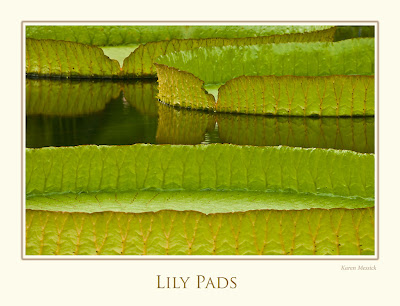




Often I am asked about using a polarizing filter by students, and frequently I find many students don't even own a polarizing filter. Well, I almost never take it off my lenses! Yes I have one for every lens I own. A circular polarizing filter gives you a creative choice in the field on many occasions you could not otherwise achieve, even with Photoshop, unless you did a whole lot of work. Sometimes the effects are subtle and some times they are dramatic. While processing a few more images from Longwood Gardens today, I thought I would share with you the vast difference a polarizer can make in your images, along with a few more shots from my trip this week to Longwood. Longwood uses black ink in their water and when you turn the polarizing filter to a certain position, the water is rendered black, as the polarizer has cut the glare off the water, or by turning the polarizing filter the opposite way the water is rendered a tone reflective of the color of the sky.
The first two images were taken a few seconds apart, and show the dramatic effect polarization can have on your images.
No comments:
Post a Comment